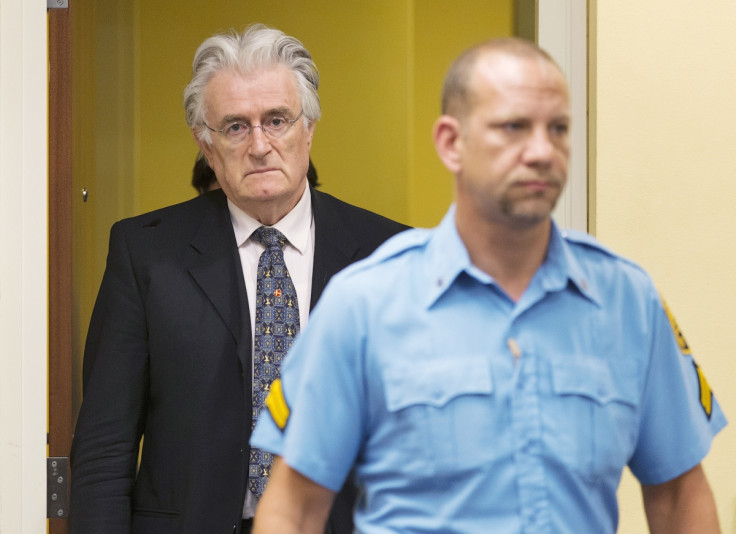Radovan Karadzic guilty of Srebrenica genocide and crimes against humanity

Bosnian Serb leader Radovan Karadzic has been found guilty of war crimes and genocide in Sbrebrenica in 1995. Karadzic, 70, is the most senior Bosnian Serb figure to be found guilty of crimes committed during the 1992-1995 Bosnian conflict by the International Criminal Tribunal for the former Yugoslavia in the Hague.
He was sentenced to 40 years imprisonment.
Karadzic protested his innocence during the eight year trial, at which he represented himself. He claims that atrocities were carried out by military forces independently, not under his orders.
The court found that there was not sufficient evidence to prove genocide had been committed in seven Bosnian municipalities during the war.
Judges ruled though that Karadzic was part of a plan to "permanently remove Bosnian Muslims and Croats" from territory claimed by Bosnian Serbs, and was instrumental in a propaganda campaign against Bosnian Muslims as enemies of Bosnian Serbs. It found Karadzic guilty of crimes against humanity, including persecution through forced transfer, deportation, unlawful detention, and discriminatory measures.
He was found guilty of direct involvement of two of the worst crimes of the conflict, the gruelling 44-month siege of Sarajevo, in which thousands of civilians were killed by shell and sniper fire, and the 1995 massacre of 8,000 Muslim men and boys in Srebrenica.
The court found a common plan among Bosnian Serb leaders of spreading terror among the civilian population of Sarajevo by sniping and shelling. Karadzic was found guilty of terror, unlawful attacks on civilians, and two counts of murder.
Karadzic was found guilty of genocide in relation to the Srebrenica massacre, one of the worst atrocities committed in Europe since the Second World War.
He was also found guilty of taking UN personnel as hostages in 1995, to stop Nato airstrike. Karadzic was sentenced by the court to 40 years imprisonment, with time spent in jail since his 2008 arrest removed from his sentence.
At least 100,000 people died during the 1992-1995 Bosnian war, with millions made homeless.
Serbian President Slobodan Milosevic, who was accused of fomenting the conflicts that caused the violent collapse of Yugoslavia in the 1990s also faced charges in the court, which was set up under a UN Convention in 1993. However Milosevic died in his jail cell in the Hague in 2006 before judges could deliver verdicts.
© Copyright IBTimes 2025. All rights reserved.






















